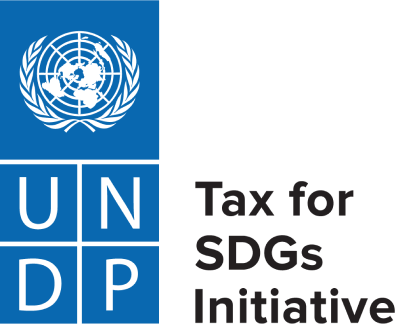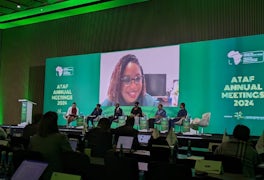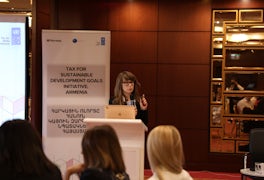Two groundbreaking digital tools—Electronic Advance Ruling (eAR) and Electronic Tariff (e-Tariff)—launched under UNDP’s Tax for SDGs initiative, are revolutionizing customs operations in Namibia. These innovations strengthen domestic resource mobilization to support sustainable development.
Historically, Namibia’s customs operations relied on inefficient manual processes, leading to delays, errors in tariff classification, and exposure to fraud. Manual record-keeping hindered data analysis, impacting risk assessment and compliance efforts. Traders faced prolonged clearance times, unpredictable costs, and opaque tariff regulations – issues that encouraged illegitimate trade.
To tackle these issues, the Namibia Revenue Authority (NamRA), in collaboration with the United Nations Development Programme (UNDP), the World Customs Organization, the European Union, and Her Majesty’s Revenue and Customs, developed and implemented the eAR and e-Tariff systems. Designed to modernize trade processes, these tools represent a significant step toward achieving Namibia’s Sustainable Development Goals (SDGs) and serve as a model for leveraging technology to drive transformative change.
Revolutionizing Trade with Digital Tools
The eAR and e-Tariff systems are transforming Namibia’s trade landscape. The eAR system provides traders with binding rulings on goods classification and valuation before import or export, reducing uncertainty and ensuring compliance. At the same time, the e-Tariff platform offers a user-friendly, real-time database of tariff classifications, duty rates, and trade agreements, empowering traders with actionable insights.
These tools enhance efficiency, reduce costs and promote transparency in customs processes. UNDP Namibia’s Resident Representative, Ms. Alka Bhatia, stated: “Achieving the SDGs demands innovative solutions. These advancements not only optimize trade operations but also position Namibia to contribute to global efforts to harness technology for sustainable development.”
The benefits extend beyond operational improvements. Modernized customs systems lower trade costs, minimize delays, and boost Namibia’s global competitiveness. Transparent customs information builds trader confidence, reduces disputes, and fosters a culture of trust within the trade ecosystem.
Bolstering Sustainable Development Goals with Digital Innovation
Namibia’s digital transformation is supported by UNDP’s Tax for SDGs initiative, which supports developing countries enhance domestic resource mobilization, combat tax evasion and align tax and fiscal policies with the SDGs for sustainable growth. In addition to supporting the e-Tariff system, the initiative has delivered advanced training in data analytics and visualization and facilitated the establishment of a cutting-edge Data Governance Dashboard. Integrated with NamRA’s Oracle system, this dashboard enables data-driven decisions that support sustainable economic growth and fiscal efficiency.
The initiative also strengthens Namibia’s financial oversight. The newly implemented Trade Verification System enhances the ability to monitor financial transactions and combat illicit flows. Furthermore, the Tax Inspectors Without Borders (TIWB) programme—jointly led by UNDP and OECD—provides technical training on issues like transfer pricing audits, bolstering tax administration expertise. Support for the Ministry of Finance in developing evidence-based fiscal policies ensures long-term economic sustainability. This multifaceted approach demonstrates UNDP’s commitment to inclusive and sustainable growth, in alignment with the SDGs.
The Way Forward
Namibia’s success with digital solutions showcases the transformative potential of technology and partnerships in overcoming systemic challenges. By modernizing customs operations, Namibia has established itself as a leader in innovation, offering a model for other nations pursuing technology-driven sustainable development.
This achievement underscores the belief that strong collaboration and forward-thinking solutions can bring the SDGs within reach. Namibia’s journey highlights how innovation, commitment, and partnership can catalyze meaningful progress and inspire others to follow suit.




